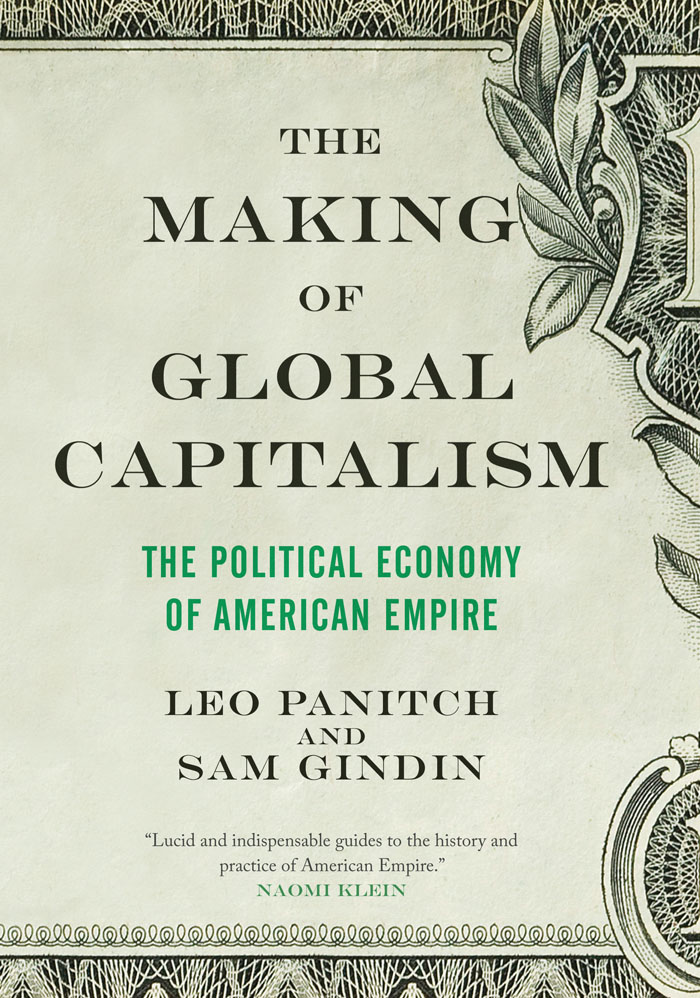Here are, in no particular order, my picks for the four best books of 2012 from a progressive economics perspective.
Leo Panitch and Sam Gindin. The Making of Global Capitalism: The Political Economy of American Empire. (Verso). I suspect this book will become a classic. It is a rich and highly detailed account of how states, and above all the U.S. state, constructed the contemporary global neoliberal order post WWII under the increasingly strong influence of financial capital. Some may baulk at the depiction of the U.S. as a ruling imperial power, but the U.S. state continues to shape and lead a global economic order in which U.S. capital remains formidably strong. This historical account of the emergence of U.S.-led global capitalism is rooted in a Marxist political economy framework that gives a great deal of weight to the relative autonomy of politics. While written from a critical perspective and while the authors are well aware of the many contradictions of neoliberal capitalism in the wake of the crisis, they struggle to end on a hopeful note.
Robert Skidelsky and Edward Skidelsky. How Much is Enough? The Love of Money and the Case for the Good Life. (Allen Lane.) A long elaboration on Keynes’ essay, “Economic Possibilities for Our Grandchildren”, this book by a father and son, economist and philosopher, sets out a truly radical case for the “good life” which is in our grasp if we reject ceaseless accumulation and embrace reforms like radical reductions of working time and a basic income for all. Utopian, but a stimulus to thinking about alternatives.
Michael J. Sandel. What Money Can’t Buy: The Moral Limits of Markets. (Farrar, Straus and Giroux.) An interesting and compelling reflection on what important issues should not be left to markets at a time when public and private spaces outside the sway of the market and the cash nexus continue to shrink.
Joseph E. Stiglitz. The Price of Inequality. (Norton.) Probably the best book-length account of why economic inequality has risen to extreme levels, and why this matters so much for democracy and economic well-being. While the general thrust of the argument is now familiar, this book is a formidable synthesis and meticulously sourced. The policy conclusions are, however, disappointingly cautious.




